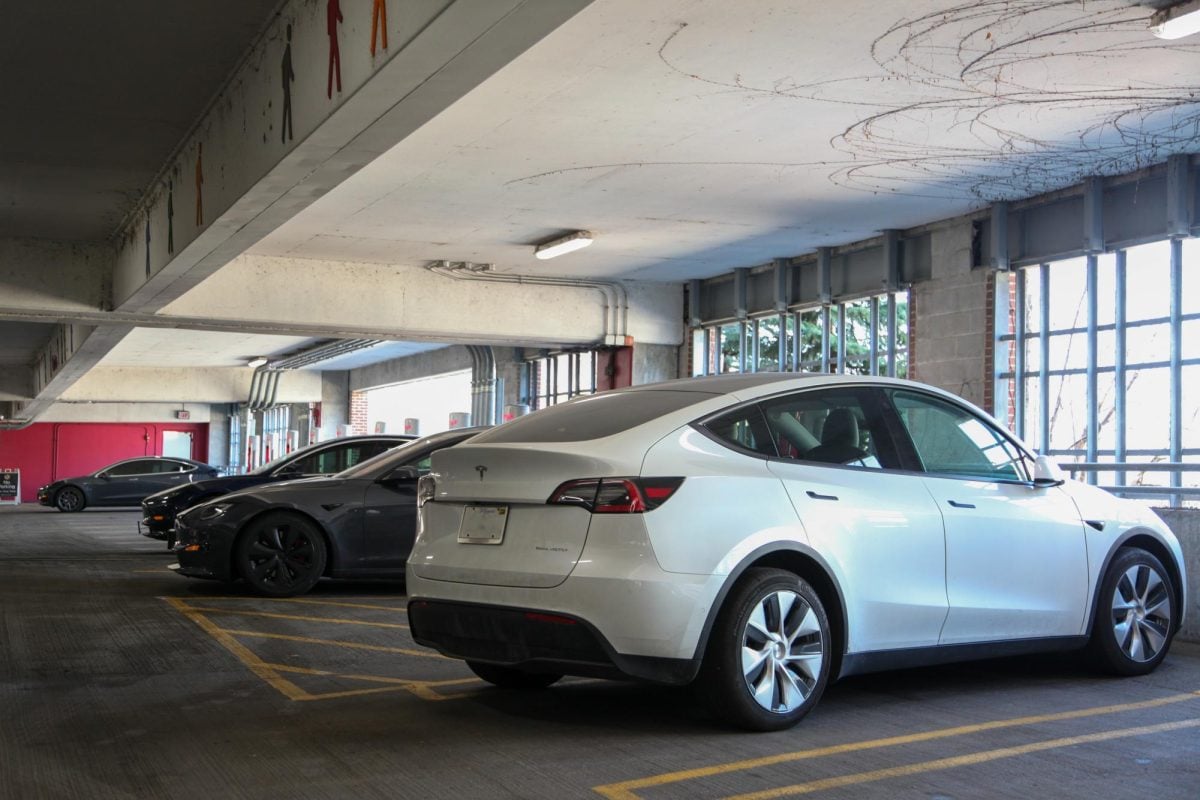Two years ago, Chicago-based graphic designer JJ Blanco faced the familiar choice of deciding on a new company car. He ultimately landed on his first electric vehicle: a Chevrolet Bolt.
Blanco said he finds the car’s maintenance more convenient and appreciates its lower noise levels, quicker acceleration and smoother ride compared to gas vehicles. Blanco has since driven 10 electric vehicles, including the Tesla Model 3 he now owns.
“Once I got the Tesla, it felt like another way of driving and another way of living,” he said.
Blanco’s choice to drive electric cars reflects a growing pattern of Evanston and Cook County residents and businesses making the same switch.
The number of registered electric vehicles in Evanston has leapt from 199 to 1,165 between 2018 and 2024, according to the Illinois Secretary of State’s Office. Cook County similarly saw a hike in electric vehicle registrations — 2,119 to 24,978 over the last five years.
Evanston is also transforming its municipal vehicles to run on electricity to reduce carbon emissions and meet the goals outlined in the city’s 2018 Climate Action and Resilience Plan. The plan calls for 100% renewable electricity by 2030 and carbon neutrality by 2050.
“I think there’s certainly more (electric) vehicles for sale,” said Cara Pratt, Evanston’s sustainability and resilience manager. “I also think there’s just more environmental ethos and people who care about things like climate change, especially in Evanston.”
Evanston officials aim to eliminate gas emissions from the city’s fleet of vehicles before 2035, and the city added 12 electric vehicles to its fleet in August. The Facilities and Fleet Management staff recently installed two dual-mounted chargers at the Evanston Service Center to accommodate the increased fleet size.
“We hope to electrify as many as possible every year,” Pratt said. “I am optimistic that we will achieve (the 2035 goal).”
Evanston school districts are also making the shift. The Evanston/Skokie School District 65 received a $230,000 grant in 2021 from the Driving a Cleaner Illinois program to upgrade its diesel-fueled buses to electrical buses. Recipients of the grant began receiving funding on April 1 and will have two to three years to acquire and put the buses to use.
“Our District is excited about the opportunity for our students and community to have access to quiet, clean operating electric school buses and improved air quality,” Melissa Messinger, the district’s executive director of communications, told The Daily in an email.
The city’s environmental initiatives are also prompting private organizations to electrify their transportation fleets. That includes Evanston’s sole compost hauler, the Collective Resource Compost Cooperative.
Before late 2023, the company’s fleet of four cargo vans and four box trucks traveled to over 60 Chicago area neighborhoods, collecting food waste to deliver to commercial compost sites over the week.
In November, the fleet received a pair of fresh additions: two electric vans.
“One great benefit to Evanston is we are using those residential trucks for pick up, which helps improve the air quality,” Co-op Board Vice President Mary Beth Schaye said. “Not having to buy gasoline also saves us money.”
Residents echoed this sentiment, pointing out the switch to electric vehicles as not only an environmental decision, but an economic one.
Stoney Goldstein has owned a Tesla Model 3 for the last year and a half after driving gas-powered cars for decades. He said he prefers electric vehicles because the price of electricity is lower than gas.
“It’s a very economical vehicle to operate,” he said. “Environmental protection is a bonus, like a cherry on top.”
Email: [email protected]
X: @Jerrwu
Related Stories:
— District 65 works to upgrade from diesel-fueled buses to electric bus fleet














